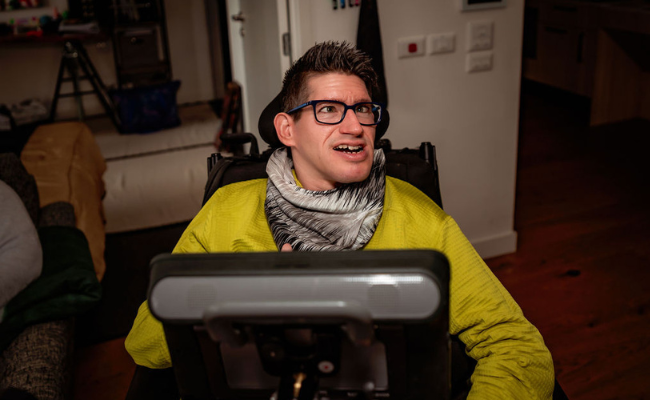How do I know what’s the right support model for me?
How do I know what’s the right support model for me?
When looking up SDA properties on the Housing Hub, you will see each advertisement talking about what supports are available at each property. Some will have 24/7 backup supports, some will have overnight support, some will allow you to bring your own support workers, some will not. How do you work out what is right for you?
When I was negotiating my own housing journey, which led to me living in my own SDA apartment, I was very green when it came to support workers. Before I moved away from home I had never had one. I was told I could bring my own support workers, but because I had none, that really didn’t apply to me.
My SDA provider had already appointed a SIL company, which would cover both the 24/7 backup supports plus my daily living supports.
What I didn’t know at the time of moving in, but definitely knew after, was that the model of supports at my SDA property was that of the old, group home model transplanted into my brand new, independently living, apartment. For me, it quickly proved to be a less than desirable model.
Personally, I believe that it’s vital that you have choice and control over your supports and who works with you. Personal care is just that, it’s personal and for you to feel completely comfortable in this vulnerable situation, you need to have workers that fit with your personality and respect your needs and wants. Under the model where the SIL company is in charge of your daily living supports, you won’t get that choice and control. I was even told that by my SIL company before I moved into my apartment.
You need to look for the support model that gives you the most choice, control and flexibility over your life as that will give you the resources you need to live your most extraordinary life.
If you do find an SDA property that you are really interested in, but you aren’t sure if the support model is right for you, don’t give up on it. After I moved in and went through the complaints processes of the SIL provider and NDIS, I was able to change my support model to an appropriate one for myself. However, it is possible to have the best support model for you before you move in. Ask questions and negotiate with the SDA provider to have the supports you need and want. Don’t settle for anything less, it’s your right.
Article published: December 2020
About the Author
Belinda worked as a Lived Experience Facilitator at Housing Hub since June 2020. She recently changed roles and is now a Disability Housing Expert, specialising in education.
Belinda brings the experience of navigating her own housing journey which sees her now living in an SDA apartment, and has a Bachelor of Commerce from Deakin University.
Belinda is passionate about people with disability having a voice and a say in their own housing journey, which will lead them to have the best support, choice and flexibility in how they live.
Learn about housing for people with disability
If you want to find out what your housing options are, book in for one of our free workshops.
You will learn about many types of housing and you can ask us your questions.
Browse Resources

Housing Seeker Profile
Creating a Housing Seeker Profile is a simple process which involves telling us what you are looking for and what is important to you.

Housing Roadmap
The Housing Hub has worked alongside people with disability to map out the stages of a housing journey and the information you need to know about when moving through each step.

Living More Independently
The Housing Hub has teamed up with Mable to create a three-part series about living more independently.


